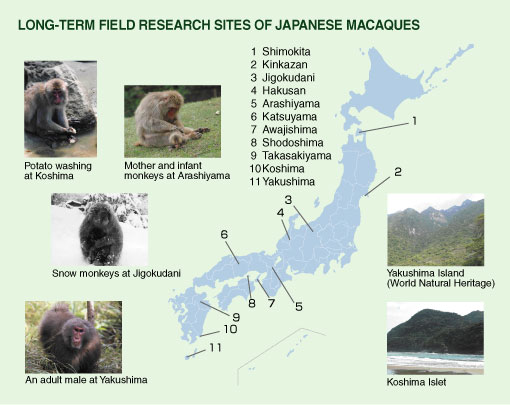International Primatological Society XXIII Congress Kyoto 2010
Primatology in Japan

We have a long history of primatology in Japan. The first field research was conducted on wild Japanese macaques on Koshima Islet in 1948, under the strong leadership of the late Kinji Imanishi. The initial aim of Japanese primatology was to understand primate societies and to thus trace the evolution of human society. The Japan Monkey Centre (JMC) was established in 1956, through a successful collaboration between field and experimental research. Furthermore JMC published "Primates," the first international journal of primatology. The Primate Research Institute of Kyoto University was established in 1967 and, since then, various fields of primatology have been pursued in collaborative projects. The Primate Society of Japan (PSJ) was founded in 1985 as a forum for researchers from a wide array of academic fields, thus promoting interdisciplinary discussions on primates. The capturing of wild Japanese macaques as crop-raiders drastically increased in the 1970s, so conservation of Japanese macaques and their habitats has become the vital role of PSJ. These efforts have resulted in the inscription of Yakushima as a World Heritage Site in 1993.